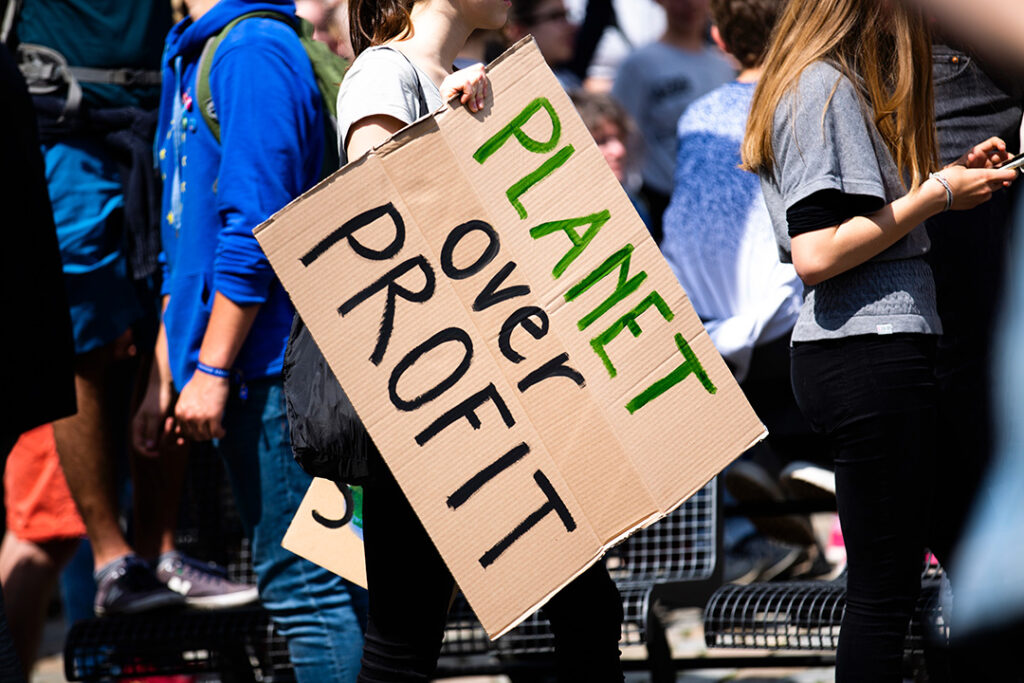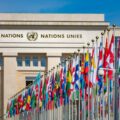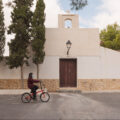How ethics play a role in climate change
How ethics play a role in climate change
Do ethics play a role in discussions on climate change? And how are religious institutions and leaders involved?
With environmental disasters,[1] [2] extreme droughts,[3] [4] and an energy crisis,[5] climate change has been a key topic in the news over the past year. For example, religious leaders and institutions such as Pope Francis[6] and the Evangelical Church in Germany[7] have spoken out on the issue.
This increased attention to climate change is also reflected on the EARS dashboard. The dashboard is a collection of summaries from European news articles related to religion and society. They reflect the developments and topics discussed in the news across the continent.
The ethics of climate change
Between 31 October 2021 and 31 October 2022, our analyst team added 2,912 articles to the dashboard. 66 of these covered the topic of climate change. This article will dive into the relationship between climate change and ethics. Do ethics play a role in discussions on climate change, and how are religious institutions and leaders involved?
To get this information from the dashboard, we add the keyword ethics to our initial search on climate change. The dashboard automatically shows us all articles from the past year that include either one of the keywords. By selecting the & button, the dashboard will only show the articles including both keywords. This selection results in 16 articles from the past year that have been tagged with both the keywords climate change and ethics.

Making religion greener
Several religious leaders have spoken out on the importance of setting a good example. For instance, churches across Europe have been imposing energy-saving measures in response to the energy crisis.[8] [9] The Church of England has even stated the aim to achieve zero carbon emissions by 2030.[10]
However, not all leaders seem to be setting an ethical example. Recently, The Guardian revealed that the Church of England had rejected calls to sell its fossil fuel holdings. In fact, the chair of the Church of England Pensions Board, Chris Mather, is a shareholder in Shell. This has led campaigners to say these were unethical investments, with some calling on Mather to resign. To compare, both the Baptist Church and United Reformed Church in the UK have divested from fossil fuels, with more than 500 churches around the world doing the same.[11]
Protecting creation
For some, an ethical view on tackling climate change comes down to protecting creation. For example, the bishop of Zamora in Spain, Fernando Valera, responded to wildfires in the region by saying that the Church would continue to provide support to protect “the world God created.”[12]
Similarly, the Evangelical Church in Germany is calling for a rapid expansion of renewable energies, stating that “this is about the mindful treatment of co-creation, which, like us humans, has its own rights to life.”[13]
In the UK, the Bishop of Oxford has added a sixth question to the Church of England’s baptismal rite, which calls on the newly baptised to “strive to safeguard the integrity of creation, and sustain and renew the life of the Earth.” The bishop believes that faith communities can bring hope to the climate debate.[14]
The UN has stated a similar claim. According to the organisation, faith-based organisations control over 8% of inhabited land, 5% of private forests, and 10% of financial institutions. Therefore, the potential influence religion has on climate change is significant. Religion’s role specifically lies in religious and spiritual values relating to nature, as well as an idea of moral responsibility that may affect consumption behaviour.[15]
Taking action
Much of the action currently taken by religious institutions concerns the reduction of energy use. For example, Vitoria Cathedral in Spain has announced to stop its traditional nighttime lights.[16] However, some are taking sustainability a step further. An interesting example is the water cremation of Desmond Tutu, Archbishop Emeritus. In water cremation, the body is inserted into a metal tube filled with a solution of water and potassium hydroxide. The liquid is heated and the body dissolves in the liquid. The remaining pieces of bone are ground to ash, and the ashes are buried. Water cremation produces 35% fewer greenhouse gases than conventional cremation.[17]
Alternative and more environmentally friendly ways of burying and cremating, such as dissolving and composting the body, have become more popular. However, ethical debates are slowing down their deployment. Some Catholics, for example, have opposed water cremation and composting the body, because they do not see them as respectful enough for the deceased.[18]
Whether it be turning off the cathedral lights at night, exploring sustainable ways of cremation, or setting targets to reduce carbon emissions, religious institutions and individuals are keen to take steps to tackle climate change. At the same time, they are an essential source of ethical considerations for sustainability-related questions.
Learn more on the EARS dashboard
The EARS dashboard allows you to gain insights into a large number of topics, including climate change and ethics. It is a free tool that allows you to make connections like those described above, and to find out about relationships between interesting subjects across Europe. Please visit the dashboard to learn more.
Sources
[1] Vesdervallei herdenkt overstromingen van vorige zomer | Kerknet
[2] La Policía detiene a dos hombres acusados de delitos contra los sentimientos religiosos
[3] “Todo lo que era verde antes ahora es negro. Pero yo de aquí ya no me muevo”
[4] ‘God, give us rain’ – Romanian monastery prays for end to drought | Reuters
[5] La Navidad en Vigo brillará este año una hora menos
[6] Dringend samenwerking nodig tegen klimaatverandering, zegt paus | Kerknet
[7] Kirche dringt auf rasche Energiewende | evangelisch.de
[8] Ferran Lluch: “Los curas tienen que aprender de los laicos a no ser meros espectadores ante la emergencia climática”
[9] El decreto del Consejo de Ministros deja fuera de las restricciones a los monumentos El Plan de Ahorro del Gobierno salva del ‘apagón energético’ las catedrales y las luces de Navidad
[10] ‘Make churches greener’ – Bishop of Norwich’s eco plea
[11] Church of England pension boss’s shares in Shell ‘shocking’, say campaigners
[12] Fernando Valera: “Vivimos en la España abandonada, y ahora dolorosamente incendiada”
[13] Kirche dringt auf rasche Energiewende | evangelisch.de
[14] Bishop of Oxford adds climate change questions to baptismal liturgy | Anglican Ink © 2022
[15] Religie speelt ‘enorme’ rol bij keren van klimaatverandering, zegt VN – Nieuw Wij
[16] El decreto del Consejo de Ministros deja fuera de las restricciones a los monumentos El Plan de Ahorro del Gobierno salva del ‘apagón energético’ las catedrales y las luces de Navidad
[17] Vesituhkaus, kompostointi ja pakastekuivaus ovat ympäristöystävällisempiä hautausmenetelmiä, mutta kovin nopeasti ne eivät ole tulossa käyttöön Suomessa – Kirkko ja kaupunki
[18] Vesituhkaus, kompostointi ja pakastekuivaus ovat ympäristöystävällisempiä hautausmenetelmiä, mutta kovin nopeasti ne eivät ole tulossa käyttöön Suomessa – Kirkko ja kaupunki






